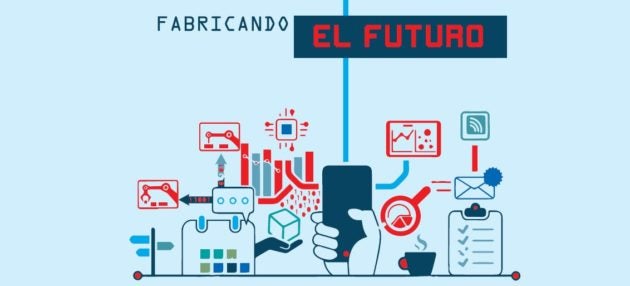Smart Manufacturing for a Smarter Future: Industry 4.0 Technologies Unleashed
Imagine a world where machines communicate with each other, factories run autonomously, and real-time data analysis drives efficiency and productivity to new heights. This is the vision of Industry 4.0, also known as smart manufacturing, a revolution in the way goods are produced.
Industry 4.0 represents the convergence of traditional manufacturing processes with cutting-edge technologies such as artificial intelligence, machine learning, Internet of Things (IoT), and big data analytics. These technologies enable interconnected systems to communicate and make intelligent decisions, transforming the manufacturing landscape.
The Benefits of Industry 4.0
Smart manufacturing brings numerous benefits to businesses and society as a whole. By leveraging advanced technologies, companies can optimize their production processes, reduce costs, and improve product quality. Real-time data analysis allows for predictive maintenance, minimizing downtime and maximizing productivity.
In addition, Industry 4.0 opens up new business models and revenue streams. Customization and personalization become easier with flexible and adaptable manufacturing systems. The ability to collect and analyze vast amounts of data enables companies to gain insights into customer preferences and market trends, leading to more targeted marketing strategies.
The Core Technologies of Industry 4.0
Several core technologies drive the transformation in smart manufacturing:
- Artificial Intelligence (AI): AI enables machines to simulate human intelligence, making autonomous decisions and learning from data. It plays a vital role in optimizing production processes, predictive maintenance, and quality control.
- Machine Learning (ML): ML algorithms enable machines to learn from experience and improve their performance without explicit programming. They are crucial in identifying patterns, predicting failures, and optimizing resource allocation.
- Internet of Things (IoT): IoT connects physical devices to the internet, allowing them to exchange data and communicate with each other. This interconnectedness improves coordination and enables real-time monitoring and control of manufacturing operations.
- Big Data Analytics: With the vast amount of data generated in smart manufacturing, big data analytics is essential for extracting valuable insights. It helps identify inefficiencies, optimize processes, and improve decision-making.
The Challenges Ahead
While the benefits of Industry 4.0 are immense, implementation comes with its own set of challenges. One major concern is cybersecurity. With increased connectivity and data sharing, the risk of cyber-attacks and data breaches rises. Robust cybersecurity measures and protocols are critical to safeguard sensitive data and ensure the integrity of manufacturing systems.
Another challenge is the upskilling and reskilling of the workforce. As smart manufacturing relies heavily on advanced technologies, there is a need for workers with the right skill set to operate and maintain these systems. Governments, educational institutions, and companies must collaborate to provide adequate training and development opportunities for the workforce.
The Future of Manufacturing
Industry 4.0 represents a paradigm shift in the manufacturing industry. As technology continues to advance, we can expect even greater integration of intelligent systems and processes. Smart factories will become the norm, where machines work in harmony with human operators, resulting in increased productivity, efficiency, and sustainability.
Furthermore, smart manufacturing will extend beyond the factory walls. It will encompass the entire supply chain, creating a seamless flow of information, materials, and products. From production to distribution, every aspect of the manufacturing process will be optimized and streamlined, contributing to a smarter and more interconnected future.
In conclusion, Industry 4.0 brings a new era of smart manufacturing, revolutionizing the way goods are produced. By leveraging advanced technologies such as AI, ML, IoT, and big data analytics, businesses can unlock unprecedented efficiency, productivity, and innovation. With proper cybersecurity measures and workforce development, the future of manufacturing holds immense potential for a smarter and more sustainable world.

